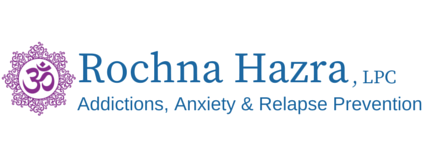Relapse Prevention
Do you wish you could feel happy and relaxed in your Sobriety again?
 Do you frequently feel stressed, exhausted and bored?
Do you frequently feel stressed, exhausted and bored?- Do you remember the good old days when you could unwind after a tough day with a glass of wine?
- Is attending 12 Step meetings becoming a drag?
- Do you worry about how often you have an urge to get a drink when difficult emotions and issues surface?
- Are you worried that you may Relapse?
- Are you scared or ashamed to confide in anyone?
Relapse is not uncommon in the Recovery process. It can happen right after rehab or several years after you have been sober. The basic question is:
How do you maintain sobriety, once you have started the process?
A lifestyle change is not easy to make and it is harder to maintain. Some people relapse several times before sobriety becomes a regular part of their lives.
It is very common for an addiction to rear its head right after discharge from a treatment center. This is especially true when the addict returns to the same surroundings and does not have a strong support system. But treatment in a rehab is just part of the recovery, albeit a very important one; the rest has to do with the addict and how hard they work their toward sustaining sobriety.
You know you may be at the brink of relapse, but you don’t know how to fix it.
It is important to remember that while relapse is common, it is NOT a necessary or unavoidable part of Recovery. When a person relapses, it is not just a huge disappointment but brings up intense emotions such as shame, anger, fear and may be even a degree of hopelessness. Some go into active addiction while others manage to get back on to the wagon right away. Returning to a full-blown active addiction may mean never having another opportunity to sobriety. Relapse can be a death sentence, so it is essential to make every effort to prevent it.
In other words, relapse can be avoided. People do not usually return to their addiction out of nowhere. There are usually clear warning signs. Your family members and certainly members of your fellowship will probably notice them and may even talk to you about them. It is important that you do not become defensive and pay attention to what they observe.
However, if you know and pay attention, you will be the first person to become aware of the telltale warning signs of Relapse. These warning signs are essential to relapse prevention.
Warning Signs
The most common signs that an individual is sliding towards relapse include:
- Stress: Stress, exhaustion and poor health are contrary to sobriety. Many alcoholics and addicts are also workaholics. They tend to high achievers and/perfectionists. Perhaps you just want to make up for lost time. But allowing yourself to become overly tired or in poor health will lead to distorted thinking again. Being in good health and well-rested is vital to your sobriety. Some alcoholics and sex addicts are also prone to be addicted to work–perhaps in a hurry to make up for lost time. Good health and enough rest are important to think in rational and healthy ways.
- Isolation: You begin to isolate from your support network: your fellowship and may be even your family. You stop sharing in meetings and eventually even stop attending them and make excuses why. You avoid your sponsor’s phone calls. You start behaving secretively or even dishonestly.
- Feeling Stuck: You may start feeling stuck in Recovery. You feel the steps are going too slow. You feel impatient with your sponsor, the pace of doing the steps and begin to believe that you are not making sufficient progress. Going to meetings feels like a drag. You even feel impatient when others are sharing at meetings. You begin to think of Recovery as a destination rather than as a process.
- Giving Up Routines, Rituals and Disciplines: You start letting up on disciplines that were essential to your early recovery. Prayer, meditation, daily inventory, attending 12 Step meetings, meetings with your sponsor, working the steps, etc. are activities that helped you stay focused and keep sobriety primary in your life. These begin to feel tedious and boring.
- Denial of problems: You drank, watched porn or used drugs to cope with certain issues in your life. While using became a problem in itself, the original issues did not disappear once you became sober. These issues will begin to cause stressors in your life sooner or later. Denying or ignoring them will not make them go away. If anything, they will endanger your sobriety. It is important to deal with them and work through them as soon as possible. Talk your counselor about them, be honest and discuss how they may be affecting your sobriety. Working through life issues is an essential part of relapse prevention.
- Overconfidence, Complacence or Cockiness: When you have been able to stay sober for some time (Longer than you thought was possible) and you begin to meet newcomers, you may start to believe that you have “made it”. Your complacency may lull you into believing that you don’t need to be as diligent in attending meetings, going to counseling sessions, praying and doing your step work. You may even begin to sound boastful and cocky about how you are not going to Relapse. To prove this yourself, you may begin to visit bars and places where you used in the past. You test the waters and you come out without drinking. You feel happy and sure of yourself. You have proved your point. But this is a sure-fire set up for Relapse. In AA, they say that if you sit in a barber shop long enough, you will get your hair cut. Your thinking has become prideful. Pay attention to feedback from your fellowship members and your counselor. Relapse prevention is serious business and recovery can never be taken for granted.
- Romanticizing or longing for the old days: This is when you start to remember the “happy old days”. Memory can be selective and tricky. You remember your old drinking buddies and how much fun you had with them. You begin to minimize the negative effects of your addiction and how desperate you were to become sober. You forget how you ruined your career or marriage or both. You forget the brushes with the law and your doctor’s warnings about your health. You begin to long for the good old days. This kind of thinking is a serious warning sign for Relapse.
- Addiction substitution: You have given up the alcohol or the prescription painkillers. You have been sober for a while. But the need to use or indulge in compulsive behaviors to deal with difficult emotions is still there. Instead of working through these emotions with your counselor or by working the steps with your sponsor, you have begun to work 16-hour days or have started shopping compulsively. A sex addict may start using alcohol while an alcoholic may start watching porn. You may justify these behaviors by telling yourself that at least you are not using your drug of choice but sooner or later you will be back in a full-blown addictive mode.
- Being a Dry Drunk: You don’t drink, you don’t use drugs or watch porn – but you act like you used to when you were using. You grow frustrated and impatient when things don’t go your way. You blame others for problems in your life. Negative thoughts crowd your mind. Self-pity and resentment become primary feelings and you become demanding rather than appreciative of other people. You also become very demanding of yourself. You set goals that are unrealistic and become discouraged and angry with yourself when you are unable to reach these.
- Hanging with your old buddies: You begin to get together with your old drinking or drug using buddies. You begin to surf familiar adult websites once again although you don’t stay long. You rationalize it by telling yourself that this is harmless. Your buddies are after all good people. You have been sober for a while now and you can handle it. But the truth is that old habits will begin to set in again and before you know it, relapse will become a reality.
- Forgetting Gratitude: You may be feeling bored, resentful, frustrated and stuck. But the bottom line is that you have forgotten gratitude. You have forgotten how much your life has changed since you have become sober. Sure, you still have urges, you still feel old unresolved issues create disturbance in your life, work and family. This can be stressful but it may be important to remember how much more stable and straightforward your life is now. Gratitude is an essential part of Relapse Prevention.
Relapse prevention treatment can help get you back on the wagon and feeling like your old sober self again.
In our treatment sessions, we will identify, explore and address the issues and stressors that are posing a threat to your sobriety. You will develop a clear idea of what you are struggling to handle and explore options to navigate challenges and stressors successfully. I will help you come up with a customized Relapse Prevention Plan that takes into account your particular triggers and urges. The exercises will also help you increase self-awareness, strengthen your recovery, and develop strategies that will help avert future relapses.
You are ready to change how things are, but you still have some questions and doubts…
“I just don’t think relapse prevention treatment will help.”
I have helped many people work through painful emotions and symptoms and feel and function better. I have helped many avoid relapse and build a solid recovery for themselves. And, I can help you, too. I will help you approach treatment that will include your mental, physical, and spiritual health and then come up with a treatment plan that is tailored to your specific situation.
“If I was strong enough, I would be able to do it by myself”:
I understand that sometimes it can feel difficult to ask for help especially when you have not been feeling good about yourself. But the fact is, you have tried to do it yourself. Relapse is too big a risk and too high a price to pay. What is important is not whether or not you can do it by yourself, but rather, whether or not you have the foresight and courage to see when you need help and ask for it.
Is counseling worth the cost? Can I afford it?
Yes, It is true that counseling is expensive. But the question is, is it more expensive than losing a marriage or a career? Is it worth losing your sobriety and sanity by Relapsing? With your time being sober, you have perhaps rebuilt trust of family members and friends and employers. Is it worth losing all that?
“Will Relapse Prevention Really Help Me?”
I have worked with Addictions for many many years. I have been trained as an Advanced Relapse Prevention Specialist and I have helped many people not just avoid relapse but help them find a sustainable plan for sobriety.
I invite you to download our free report on relapse prevention treatment. It may help to answer many of the questions you may have about this process. It will also guide you through some simple and basic steps to avoid relapse. While it is not always easy at first, you will begin to feel better very soon. When you are ready to begin treatment, give me a call. Or, simply make an appointment online. Taking that first step is a critical part of regaining control of your sobriety.
About Rochna: Rochna Hazra is trained in Marriage and Family Therapy at Virginia Tech. She includes the emotional, psychological, spiritual and family aspects of a person in her work.
Rochna has extensive knowledge, training and experience in the area of Addictions. Rochna is also a Certified Advanced Relapse Prevention Specialist and trained in Mindfulness-based Therapy and Mindfulness based Relapse Prevention.
Originally from India, she combines the Eastern traditions of mindfulness, non-judgment and a holistic approach to healing with the Western approach of realism and solution-focused action.

